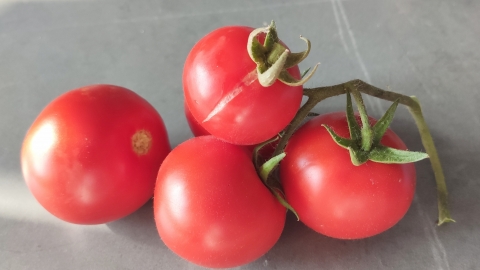Can tomatoes and button mushrooms be eaten together?
Under normal circumstances, tomatoes and oyster mushrooms can be consumed together, but intake should follow the principle of moderation. The specific analysis is as follows:

Tomatoes are rich in dietary fiber, beta-carotene, vitamins, and calcium, while oyster mushrooms contain protein, amino acids, phosphorus, potassium, and other nutrients. Although the nutritional components of the two differ, there are no substances that conflict with each other. The vitamin C and lycopene in tomatoes can combine with the protein and minerals in oyster mushrooms to provide a variety of nutrients.
However, both tomatoes and oyster mushrooms are high in dietary fiber, and excessive intake may increase the burden on the gastrointestinal tract, potentially causing symptoms of indigestion such as bloating and abdominal pain. In particular, individuals with gout or elevated uric acid levels may experience increased uric acid levels and gout attacks if they consume excessive amounts of oyster mushrooms. Additionally, some people may be sensitive to tomatoes and may experience allergic reactions after consumption.
Therefore, in daily diets, individuals should pay attention to their own health and allergy conditions, ensure reasonable food combinations, and avoid allergens. A balanced diet with diverse food sources, including more fresh vegetables and fruits, should be maintained to promote overall health.
References
[1] Jin Tongming. Nutritional Value and Health Benefits of Tomatoes [J]. Vegetables, 1998, (03): 31.
[2] Zhang Liying, Pan Ting, Su Yu, et al. Nutritional Analysis of Oyster Mushroom and杏鲍菇(Pleurotus eryngii) Substrates [J]. Guangdong Trace Elements Science, 2015, 22(05): 24-28.




